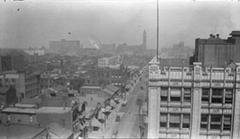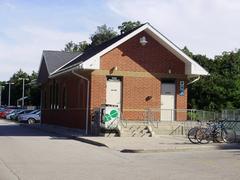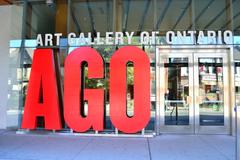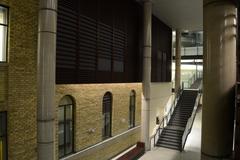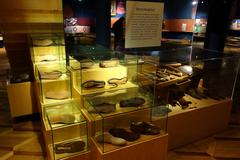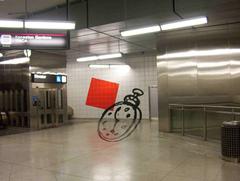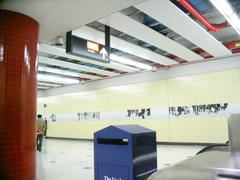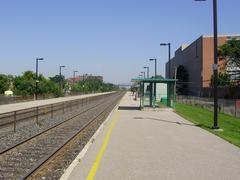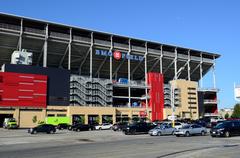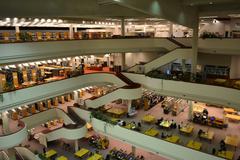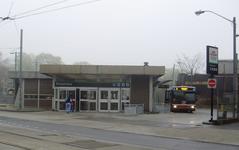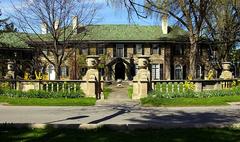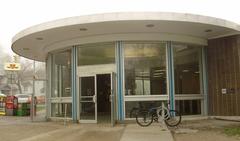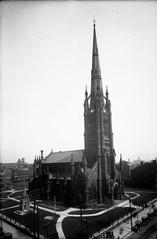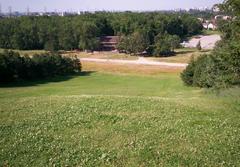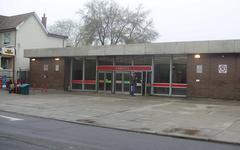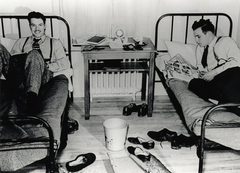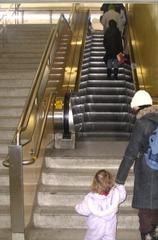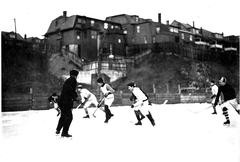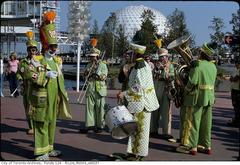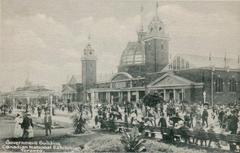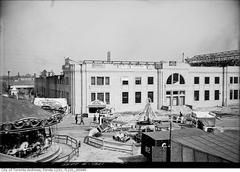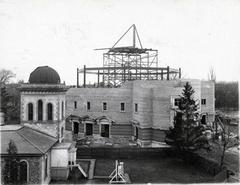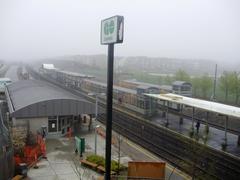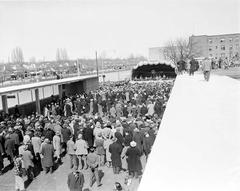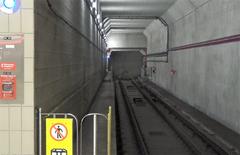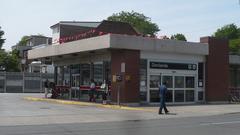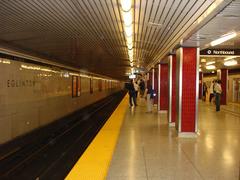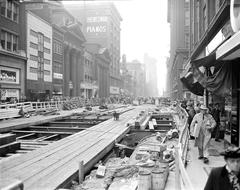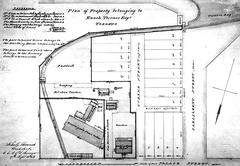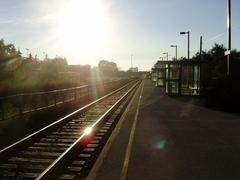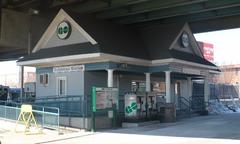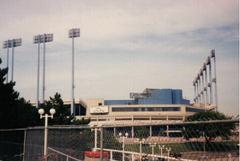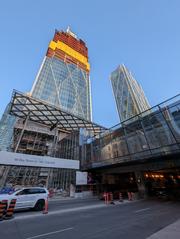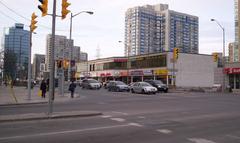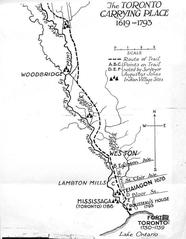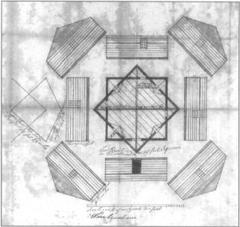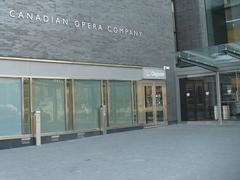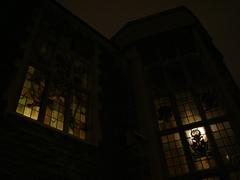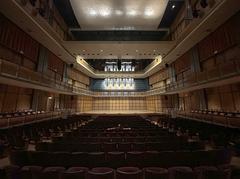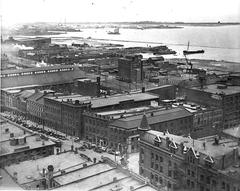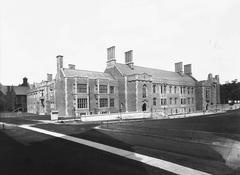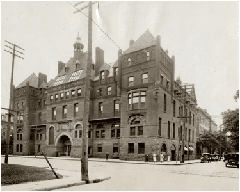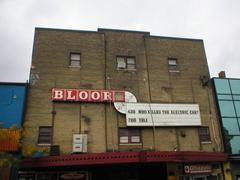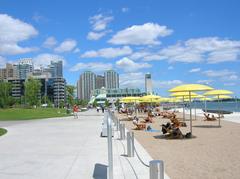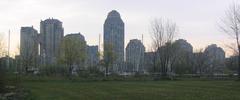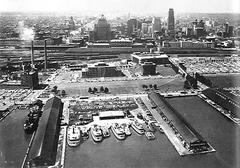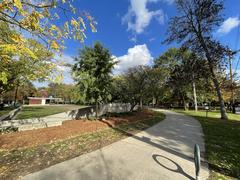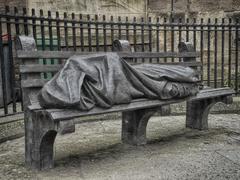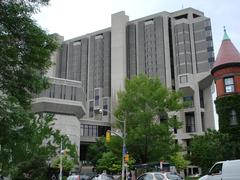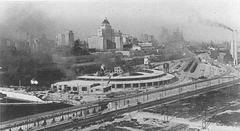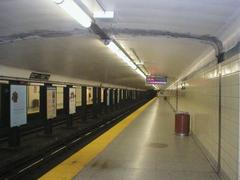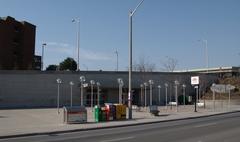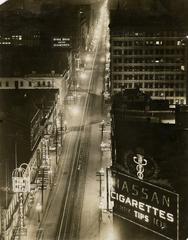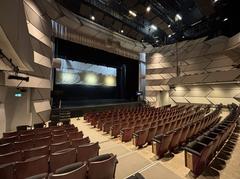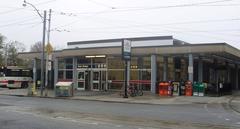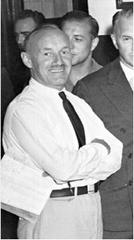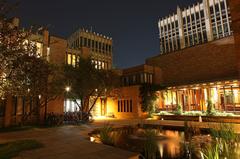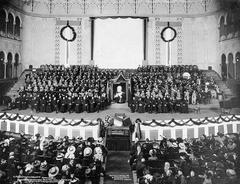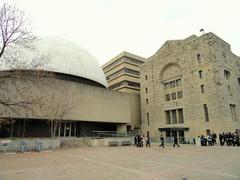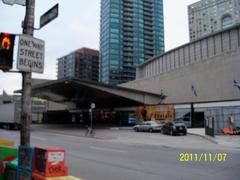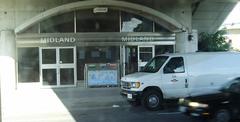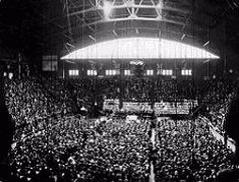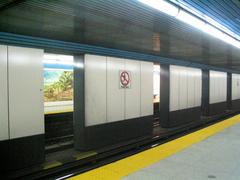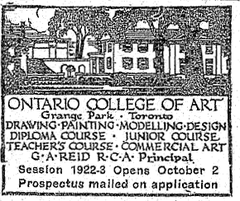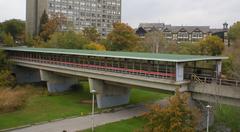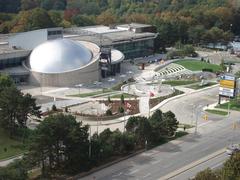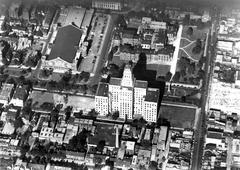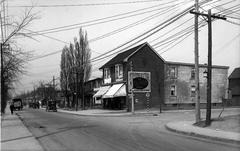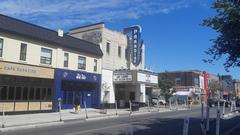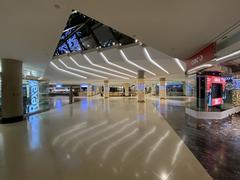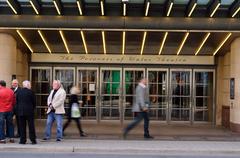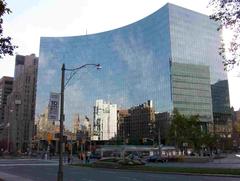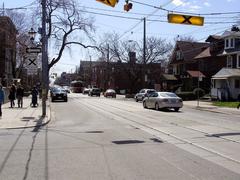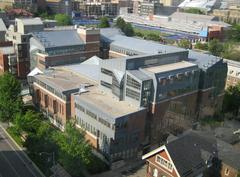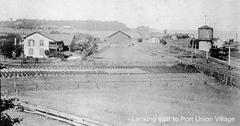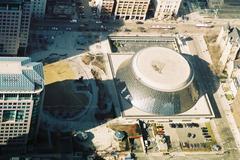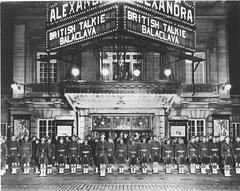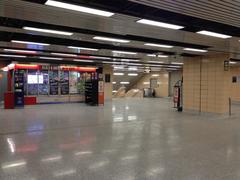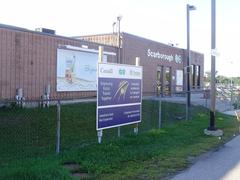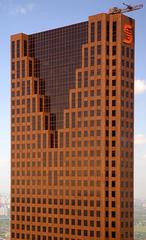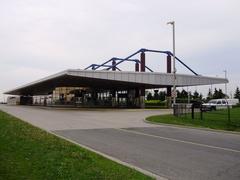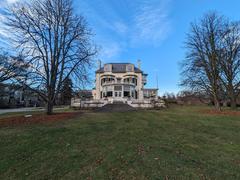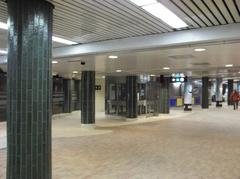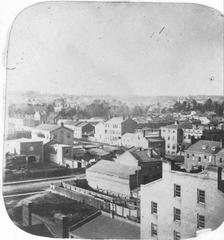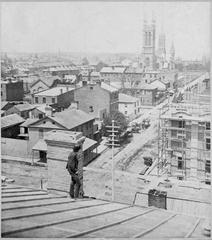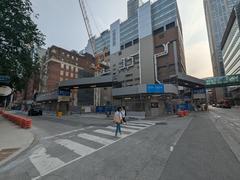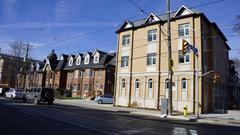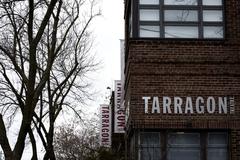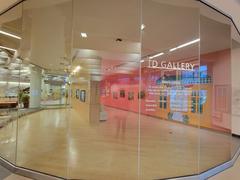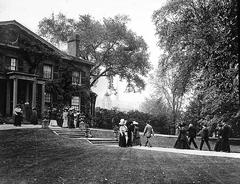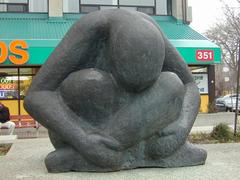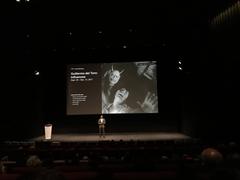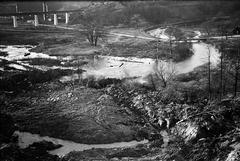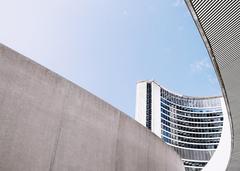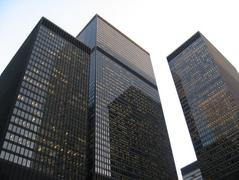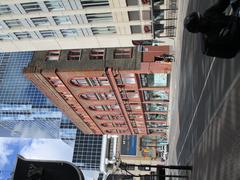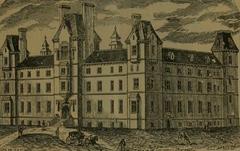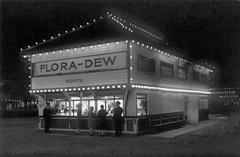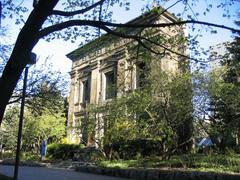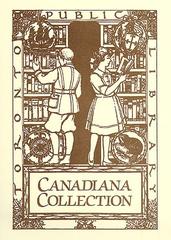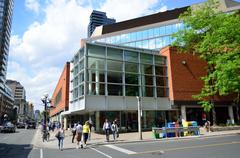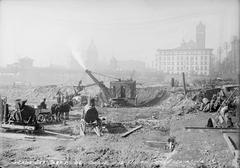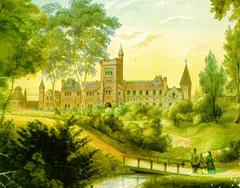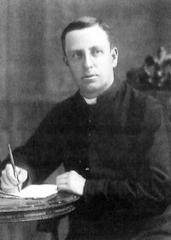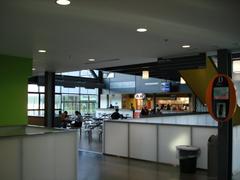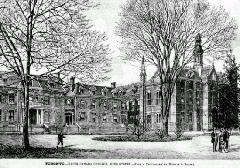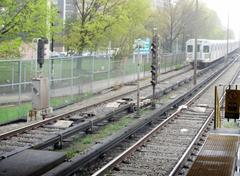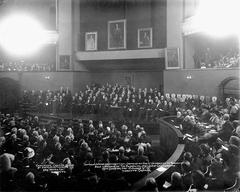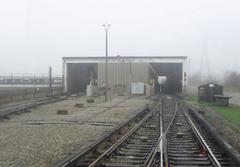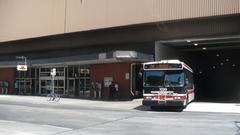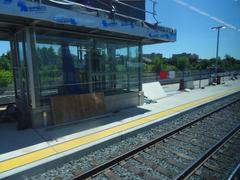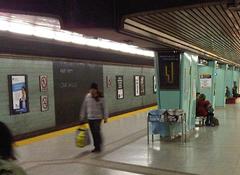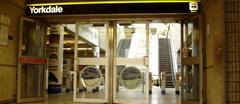
Comprehensive Guide to Casa Loma
Date: 17/07/2024
Introduction
Table of Contents
- Introduction
- Historical Background and Significance
- Casa Loma Today - A Window into the Past and a Cultural Hub
- Architectural Design and Notable Features of Casa Loma
- Visitor Information
- FAQ
- Conclusion
- References
Historical Background and Significance
A Dream Realized - The Story of Casa Loma
Casa Loma, Spanish for “Hill House,” is more than just a historical house; it’s a testament to the ambition and dreams of one man, Sir Henry Pellatt (1859-1939). Born in Kingston, Ontario, Pellatt rose to prominence as a financier, industrialist, and military man. His involvement with the Toronto Electric Light Company and later the Electrical Development Company of Ontario played a key role in the electrification of Ontario. His business acumen earned him a fortune, allowing him to realize his lifelong dream – building a majestic castle.
From Vision to Reality - The Construction of a Castle
Pellatt commissioned the renowned architect E.J. Lennox to design his dream home. Construction began in 1911, employing a workforce of 300 men for three years. The ambitious project incorporated the latest technologies of the time, including an elevator, central vacuum system, and complex electrical systems. The total cost, a staggering $3.5 million then, would be well over $80 million today.
More Than Just a Home - Casa Loma’s Early Years
Completed in 1914, Casa Loma became the Pellatt family residence. The castle, with its 98 rooms spread across 64,700 square feet, was designed for grand entertainment. The Pellatts hosted lavish parties, political gatherings, and charitable events, making Casa Loma a central hub of Toronto’s social scene.
A Change of Fortune - The Decline and Rebirth of Casa Loma
Unfortunately, Pellatt’s financial success was not to last. A series of business setbacks, coupled with the economic downturn of the Great Depression, forced him to relinquish Casa Loma in 1924. After a brief stint as a luxury hotel, the castle faced an uncertain future. In 1933, the City of Toronto seized Casa Loma for unpaid taxes. It was almost demolished, but the Kiwanis Club of West Toronto stepped in, recognizing its potential as a tourist attraction. Since then, Casa Loma has been meticulously restored and opened to the public, becoming one of Toronto’s most iconic landmarks.
Casa Loma Today - A Window into the Past and a Cultural Hub
Architectural Design and Notable Features of Casa Loma
Architectural Style - A Tapestry of Influences
Casa Loma’s architecture is a fascinating blend of several styles, each contributing to its grandeur and charm:
- Gothic Revival: Evident in Casa Loma’s pointed arches, soaring towers, and decorative elements like gargoyles.
- Romanesque: The robust and rounded arches, thick walls, and use of stone add a sense of strength and solidity.
- Scottish Baronial: Reflected in Casa Loma’s turrets, battlements, and overall imposing silhouette.
This eclectic mix of styles, masterfully combined, gives Casa Loma a unique character that sets it apart from typical European castles.
Notable Features - A Glimpse into Opulence
Each room and feature of Casa Loma tells a story of luxury and extravagance:
- The Great Hall: This grand entrance hall features a 60-foot-high ceiling, ornate oak paneling, and two massive fireplaces.
- The Library: Paneled in rich mahogany, it features a hidden door leading to a secret passage.
- The Conservatory: Connected to the main house by a glass and oak tunnel, it housed exotic plants and flowers.
- The Towers: Offering breathtaking views of the city and Lake Ontario, the Norman and Scottish Towers are particularly noteworthy.
- The Stables and Garage: Connected to the main house by an 800-foot tunnel, the stables housed Pellatt’s prized horses, and the garage showcased his collection of automobiles.
- The Gardens: The beautifully maintained grounds offer a serene ambiance and stunning views.
Exploring the Details - Craftsmanship and Artistry
Casa Loma’s beauty lies in its intricate details:
- Stained Glass: Stunning windows depict various themes, from heraldic symbols to scenes from medieval times.
- Wood Carvings: From ornate paneling to intricate furniture details, exceptional craftsmanship is evident throughout the castle.
- Stonework: Intricate stone carvings, including gargoyles and decorative elements, add character and charm.
Visitor Information
Visiting Hours and Tickets
Casa Loma is open daily from 9:30 AM to 5:00 PM. Tickets can be purchased online or at the entrance. Prices are as follows:
- Adults (18-64): $30
- Seniors (65+): $25
- Youth (14-17): $25
- Children (4-13): $20
- Children (3 and under): Free
Travel Tips
- Getting There: Casa Loma is easily accessible by public transit. Take the subway to Dupont Station, and it’s a short walk from there.
- Parking: Limited parking is available on-site for a fee.
- Accessibility: The main floor and gardens are wheelchair accessible, though some areas may not be fully accessible due to the historic nature of the building.
- Photography: Allowed inside Casa Loma for personal use.
Nearby Attractions
- Spadina Museum: A historic house museum nearby.
- Royal Ontario Museum: An extensive collection of art, culture, and natural history.
- Gardiner Museum: Specializing in ceramics, a must-visit for art enthusiasts.
Special Events and Guided Tours
Casa Loma hosts various events throughout the year, including holiday celebrations, escape room experiences, and garden tours. Guided tours provide in-depth insights into the castle’s history and architecture.
FAQ
Q: What are Casa Loma’s visiting hours? A: Casa Loma is open daily from 9:30 AM to 5:00 PM.
Q: How much are tickets to Casa Loma? A: Ticket prices are $30 for adults, $25 for seniors and youth, $20 for children, and free for children under 3.
Q: Is Casa Loma wheelchair accessible? A: The main floor and gardens are wheelchair accessible, but some areas may not be fully accessible due to the historic nature of the building.
Q: Can I take photos inside Casa Loma? A: Yes, photography is allowed inside Casa Loma for personal use.











